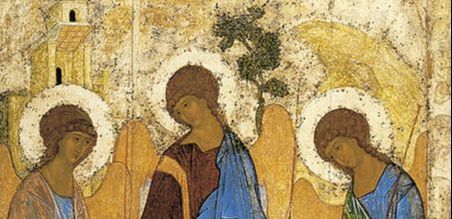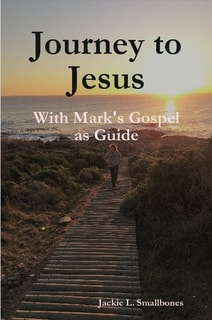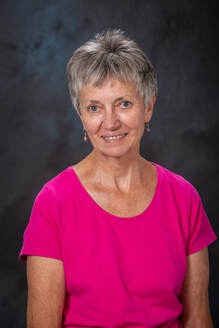OFF WITH YOUR SHOES, PLEASE
Every year on Trinity Sunday the community I worship with wonders about and struggles with the concept of Trinity. We always come away dissatisfied, with more questions than answers. After this last Trinity Sunday’s discussion, I came home and thought about what I’d say if it was ever my turn to preach the sermon on Trinity Sunday, which I hope never happens. I think I might begin with some of my favorite quotes, ones I often used in my 30+ years of teaching about the Trinity.
1. From a three-year-old
One of my students was teaching about the Trinity to her preschool Sunday school class. A three-year-old (son of a former colleague in the religion department who will remain anonymous) announced, “I’ve been trying to understand the Trinity my entire life.” The kid was all of three years! It’s a good thing he wasn’t at our church this past Trinity Sunday. He’d have discovered that many of the senior members of the congregation are still saying the same thing! They’re still trying to understand the Trinity, and they’re considerably older than three. I know they know they will never understand it, but they keep trying anyway.
2. From Stanley Grenz
Stanley Grenz was a much loved theologian in the Baptist tradition who died prematurely of a brain hemorrhage in 2005. In his book, Created for Community, he wrote, “Deny the doctrine of the Trinity and you’ll lose your salvation; try to comprehend it, and you’ll lose your mind” (1996:42). I’m not so sure about the first half of his sentence. Will we really lose our salvation if we deny the Trinity? I don’t think so. I’m pretty sure about the second half. ‘You’ll lose your mind’ trying to understand the mystery of God as Three in One. Which is probably one reason why I stopped trying to understand the Trinity a long time ago. Some think I lost my mind anyway!
3. From J. K. Griderp
Preparing for my first time to teach Christian doctrine, I came across a quote by J. K. Griderp in in a book edited by Carl F. Henry, Basic Christian Doctrines. I know nothing of the author of the quote besides his (her?) name, J. K. Griderp. I did do a google search but that came up with J. K. Rowling! I don’t believe there is any connection between them. Whoever Griderp was, he (she) left behind my favorite quote about the Trinity, from which I got the title for this piece.
"Off with your shoes, please, for this is holy ground. Away with finely figured syllogisms and ordinary arithmetic: here, logic and mathematics do not suffice. The need is rather for a listening ear, an obedient heart, rapt attention, a careful engagement with the Holy Scriptures."
I think that says all that needs to be said. Sadly, too few do what it recommends. We continue with our futile attempts to understand the Trinity and continue to use our ‘finely figured syllogisms.’ Once I’d explained ‘syllogism’ (to over simplify, a syllogism is equating a difficult or unknown concept with something known and seemingly similar), I’d always ask if the class had ever been taught any in regard to the Trinity. Invariably, someone would say, ‘The Trinity is like an egg, which consists of three parts (shell, white and yoke) and yet is still one egg.’ After a brief analysis in which we noted that an egg shell is vastly different to egg white or yoke (I mean, no one in their right mind eats egg shell and some people only eat the white because they don’t like the yoke), we’d conclude this isn’t a helpful likeness to Trinity since each person of the Trinity is still fully God and thus equal (according to orthodox belief). Next, a student would suggest water, which consist of vapor, ice, liquid. That too went the same way as an egg; not very helpful. After a few more, we’d have to agree with J. K. Griderp (not Rowling) and do away with all our ‘finely figured syllogisms’ and our attempts to make them up. We’ll lose our mind trying to comprehend such an incomprehensible God.
Having said all that, I want to add that I’m not one trying to understand the Trinity even though I too seek to understand in order to enter deeper into the relationship with God, the Three in One. No, I don’t get it and, yes, I am still searching for better ways to know and explain God as Trinity, but I gave up needing to understand, as in coming to that ‘aha’ moment of finally getting it, a long time ago. It’s a Mystery I can live with because it reminds me our God is incomprehensible and therefore much greater than me and much greater than this messy world we live in. Some questions, as Tomás Halík notes, “are too good to spoil with answers, that should remain an open window” leading, not to resignation but to deeper contemplation (I want you to be, 2016, p. 2). The meaning of Trinity is one of those questions. However, as Richard Rohr suggests, “mystery isn’t something that you cannot understand—it is something that you can endlessly understand! There is no point at which you can say, ‘I’ve got it.’ Always and forever, mystery gets you” (The Divine Dance, 2016, p. 27). Which is why it keeps us in contemplation; there's an endlessness to our knowing and understanding. We’re not supposed to understand God as Trinity; we’re supposed to worship God as Trinity—take off our shoes, please and behave as if we truly are on holy ground, because we are.
I conclude with a quotation from Karl Rahner in Richard Rohr’s book on the Trinity, and a recommendation of his book for its refreshing look at this difficult subject. The quote is a stark warning of how often in the Christian tradition we live our lives as if Trinity has nothing to do with Christian living, but it does and we'll live distorted lives if we ignore the Trinity. Rahner wrote, "Christians are, in their practical life, almost mere ‘monotheists’. We must be willing to admit that, should the doctrine of the Trinity have to be dropped as false, the major part of religious literature could well remain virtually unchanged" (p. 26).
The book:
The Divine Dance: The Trinity and your Transformation by Richard Rohr with Mike Morrell. Whitaker House: 2016.
Jackie l. Smallbones
Orange City, IA 2018©
1. From a three-year-old
One of my students was teaching about the Trinity to her preschool Sunday school class. A three-year-old (son of a former colleague in the religion department who will remain anonymous) announced, “I’ve been trying to understand the Trinity my entire life.” The kid was all of three years! It’s a good thing he wasn’t at our church this past Trinity Sunday. He’d have discovered that many of the senior members of the congregation are still saying the same thing! They’re still trying to understand the Trinity, and they’re considerably older than three. I know they know they will never understand it, but they keep trying anyway.
2. From Stanley Grenz
Stanley Grenz was a much loved theologian in the Baptist tradition who died prematurely of a brain hemorrhage in 2005. In his book, Created for Community, he wrote, “Deny the doctrine of the Trinity and you’ll lose your salvation; try to comprehend it, and you’ll lose your mind” (1996:42). I’m not so sure about the first half of his sentence. Will we really lose our salvation if we deny the Trinity? I don’t think so. I’m pretty sure about the second half. ‘You’ll lose your mind’ trying to understand the mystery of God as Three in One. Which is probably one reason why I stopped trying to understand the Trinity a long time ago. Some think I lost my mind anyway!
3. From J. K. Griderp
Preparing for my first time to teach Christian doctrine, I came across a quote by J. K. Griderp in in a book edited by Carl F. Henry, Basic Christian Doctrines. I know nothing of the author of the quote besides his (her?) name, J. K. Griderp. I did do a google search but that came up with J. K. Rowling! I don’t believe there is any connection between them. Whoever Griderp was, he (she) left behind my favorite quote about the Trinity, from which I got the title for this piece.
"Off with your shoes, please, for this is holy ground. Away with finely figured syllogisms and ordinary arithmetic: here, logic and mathematics do not suffice. The need is rather for a listening ear, an obedient heart, rapt attention, a careful engagement with the Holy Scriptures."
I think that says all that needs to be said. Sadly, too few do what it recommends. We continue with our futile attempts to understand the Trinity and continue to use our ‘finely figured syllogisms.’ Once I’d explained ‘syllogism’ (to over simplify, a syllogism is equating a difficult or unknown concept with something known and seemingly similar), I’d always ask if the class had ever been taught any in regard to the Trinity. Invariably, someone would say, ‘The Trinity is like an egg, which consists of three parts (shell, white and yoke) and yet is still one egg.’ After a brief analysis in which we noted that an egg shell is vastly different to egg white or yoke (I mean, no one in their right mind eats egg shell and some people only eat the white because they don’t like the yoke), we’d conclude this isn’t a helpful likeness to Trinity since each person of the Trinity is still fully God and thus equal (according to orthodox belief). Next, a student would suggest water, which consist of vapor, ice, liquid. That too went the same way as an egg; not very helpful. After a few more, we’d have to agree with J. K. Griderp (not Rowling) and do away with all our ‘finely figured syllogisms’ and our attempts to make them up. We’ll lose our mind trying to comprehend such an incomprehensible God.
Having said all that, I want to add that I’m not one trying to understand the Trinity even though I too seek to understand in order to enter deeper into the relationship with God, the Three in One. No, I don’t get it and, yes, I am still searching for better ways to know and explain God as Trinity, but I gave up needing to understand, as in coming to that ‘aha’ moment of finally getting it, a long time ago. It’s a Mystery I can live with because it reminds me our God is incomprehensible and therefore much greater than me and much greater than this messy world we live in. Some questions, as Tomás Halík notes, “are too good to spoil with answers, that should remain an open window” leading, not to resignation but to deeper contemplation (I want you to be, 2016, p. 2). The meaning of Trinity is one of those questions. However, as Richard Rohr suggests, “mystery isn’t something that you cannot understand—it is something that you can endlessly understand! There is no point at which you can say, ‘I’ve got it.’ Always and forever, mystery gets you” (The Divine Dance, 2016, p. 27). Which is why it keeps us in contemplation; there's an endlessness to our knowing and understanding. We’re not supposed to understand God as Trinity; we’re supposed to worship God as Trinity—take off our shoes, please and behave as if we truly are on holy ground, because we are.
I conclude with a quotation from Karl Rahner in Richard Rohr’s book on the Trinity, and a recommendation of his book for its refreshing look at this difficult subject. The quote is a stark warning of how often in the Christian tradition we live our lives as if Trinity has nothing to do with Christian living, but it does and we'll live distorted lives if we ignore the Trinity. Rahner wrote, "Christians are, in their practical life, almost mere ‘monotheists’. We must be willing to admit that, should the doctrine of the Trinity have to be dropped as false, the major part of religious literature could well remain virtually unchanged" (p. 26).
The book:
The Divine Dance: The Trinity and your Transformation by Richard Rohr with Mike Morrell. Whitaker House: 2016.
Jackie l. Smallbones
Orange City, IA 2018©




